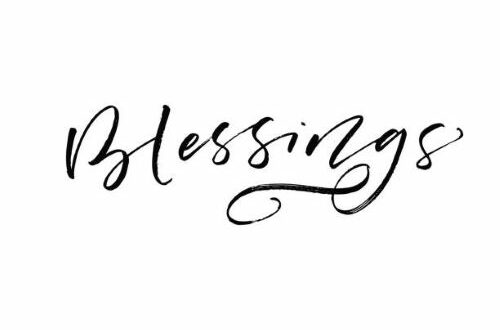
Abortion. A response to Culture; combatting fear with community
Recently on social media, I have observed a variety of statements, carefully and well meaningfully crafted, to support the concept of abortion. In particular, former supreme court Justice, and women’s rights champion, Ruth Bader Ginsburg’s quote, stood out to me. Interestingly, I agree with her sentiment, just for different reasons.
“The decision whether or not to bear a child is central to a woman’s life, to her well-being and dignity. It is a decision she must make for herself. When government controls that decision for her, she is being treated less than a fully adult human responsible for her own choices.”
“The decision whether or not to bear a child is central to a woman’s life, to her well-being and dignity.”
Yes, yes, it is. The female’s ability to bear a child is nothing less than a miracle. We could spend a significant amount of time talking about the beauty and necessity of gender, but that feels like a subject in and of itself. Hopefully it isn’t lost on the readers.
Christian or not, sexual intimacy is (scientifically) designed to do several basic things; connect men and women together, in a unique, physical way, consisting of mutual emotional and physical pleasure as well as continue the existence of mankind through the creation of more humans.
So, not only is bearing children a unique, central time in the life of a woman, but one could argue that the act of intimacy is equally as important. After all, it ties these experiences together; mating equals production. If the act of intimacy can create something as precious as motherhood and human life than it stands to reason that intimacy is just as “central” to the life of a woman.
Plainly spoken, the decision to enter into sexual intimacy is a decision central to one’s life for when entering into that decision, you invite the central possibility of bearing children. And, as we have stated, I believe all parties agree that the decision to bear children is so significant to people that we are willing to spend a tremendous amount of effort bringing it up for control and discussion.
Everybody loves science, so let’s go there for a minute.
After the refresher course above on the key role that sexual intimacy plays in the formula for the groundbreaking role of motherhood, it is no surprise that scientifically speaking, intimacy is designed to create monogamy. The body releases the same “feel good” hormone, oxytocin, during 3 key intimate moments in the lives of humans, intimacy, childbirth and breastfeeding. It happens other times too, but it is no coincidence that this chemical linked to a special connection is released into the body during the most powerful moments of connection and bonding that we have in the known universe. Society has generally accepted the fact that the bond between a mother and a child is inexplicably special and life changing, note, the same attracting, connecting, bonding process is also happening during intimacy. Perhaps conveniently, we choose to ignore the fact that this bonding process between humans that happens during intimacy creates a bond similar to the faithfulness and love that takes place between mother and child.
“It is a decision she must make for herself.”
Of course, it is. No one is insinuating that a woman should be out of control of this decision. Again, intimacy is effectively the first decision made on the road to conception. Sort of like when my husband says that I need to be willing to kill the person that I’m shooting at should I decide to pull the trigger of our gun. I have a weapon for self-defense but because there is a possibility that it will kill someone, I am highly unlikely to use it. If it is going to be me or my family or the attacker, I suppose I could pull the trigger. The minute I pull the trigger, I have accepted the fact that someone may be fatally injured. You get the idea.
“When government controls that decision for her, she is being treated less than a fully adult human responsible for her own choices.”
This is an interesting statement. If the person in question behaved as though responsibility for one’s choices is a value, I am not certain there would be a need for this discussion. It seems people agree that arguments made in instances such as rape and incest are mainly symbolic in nature, this is reasonable as statistics reveal, thankfully, that only 1% or so of abortions take place due to rape and less due to incest. That seems important, because it stands to reason that 99% of pregnancies happen by choice regarding sexual intimacy.
One serious, obvious issue that has not been addressed at this point is women in abusive relationships. I think that while this issue should not be ignored, it is not related to abortion. It is an entirely separate, delicate, issue that abortion does not solve. The existence of the two most certainly complicate each other, but each take on a life of their own, with their own complexities.
This submission also does not address the vast emotional complexities involved when a woman faces an unplanned pregnancy. It is also not meant to dismiss the gravity and difficulty of accepting the position of motherhood, planned or unplanned, or placing children with adoptive services. Like other issues mentioned, each of these situations is unique and separate from the issue of abortion.
In that same vein, this does not suggest or accept the idea that the life of an unborn baby would be saved as opposed to a mother in a health crisis. That is not a thing. (see sources below for clarification)
It feels necessary to say that abortion is not a religious issue. It is a human rights issue. It would feel cruel to say that religious people are the only people in society who value human life or sacrificial commitment to responsibility.
All of that said, as Christians, we do have a unique response to the issue.
God says that sex is sacred, and emphasizes how devotion to purity in our sexual relationships is a key aspect of living our lives the way they are designed to be lived (1 Thess. 4:3, Eph. 5:3, Col 3:5, 1 Cor. 6:9-10, Mark 7:20-23).
The Bible teaches that there is a particular order to the creation of children. The making of a baby is not haphazard. A man and woman devote themselves to each other for a life time, enjoy sex and have children (Gen. 2:24).
There are no accidents (Psalm 139:15-16, Jer. 1:4-5). Because there are no accidents, then the only option is to care for God’s beloved creation. Anything else outside of this is to deny care for creation, and essentially becomes a “choice” of defiance.
We don’t live in crisis. Christians most definitely face crisis situations; it is a fact of life taught in scripture. But Christians don’t live in crisis. We are victorious (1 Cor. 10:13). We do hard things together. We bear one another’s burdens. We believe God will never leave us or forsake us. God is never without a plan for our future. There is not a moment we are neglected by the Heavenly Father. There isn’t a need He doesn’t see and a need He can’t meet. There isn’t a problem that we can’t face together. We are committed to facing the challenges of life together, head on, all the way to the finish line.
Believer, the world will tell you that you need more control over your body, but you have it. You are capable of making decisions for yourself and managing the crises of this life, because the same power of the Holy Spirit that rose Jesus from the dead lives in you (Rom. 8:11)! Sister, if your heart aches for this community, I pray that longing leads you to feet of Jesus and the open arms of the supportive women around you.
Rape and incest account for few abortions, so why all the attention? (usatoday.com)
https://www.nytimes.com/interactive/2021/12/14/upshot/who-gets-abortions-in-america.html
Texas Abortion Law Complicates Care for Risky Pregnancies – The New York Times (nytimes.com)




